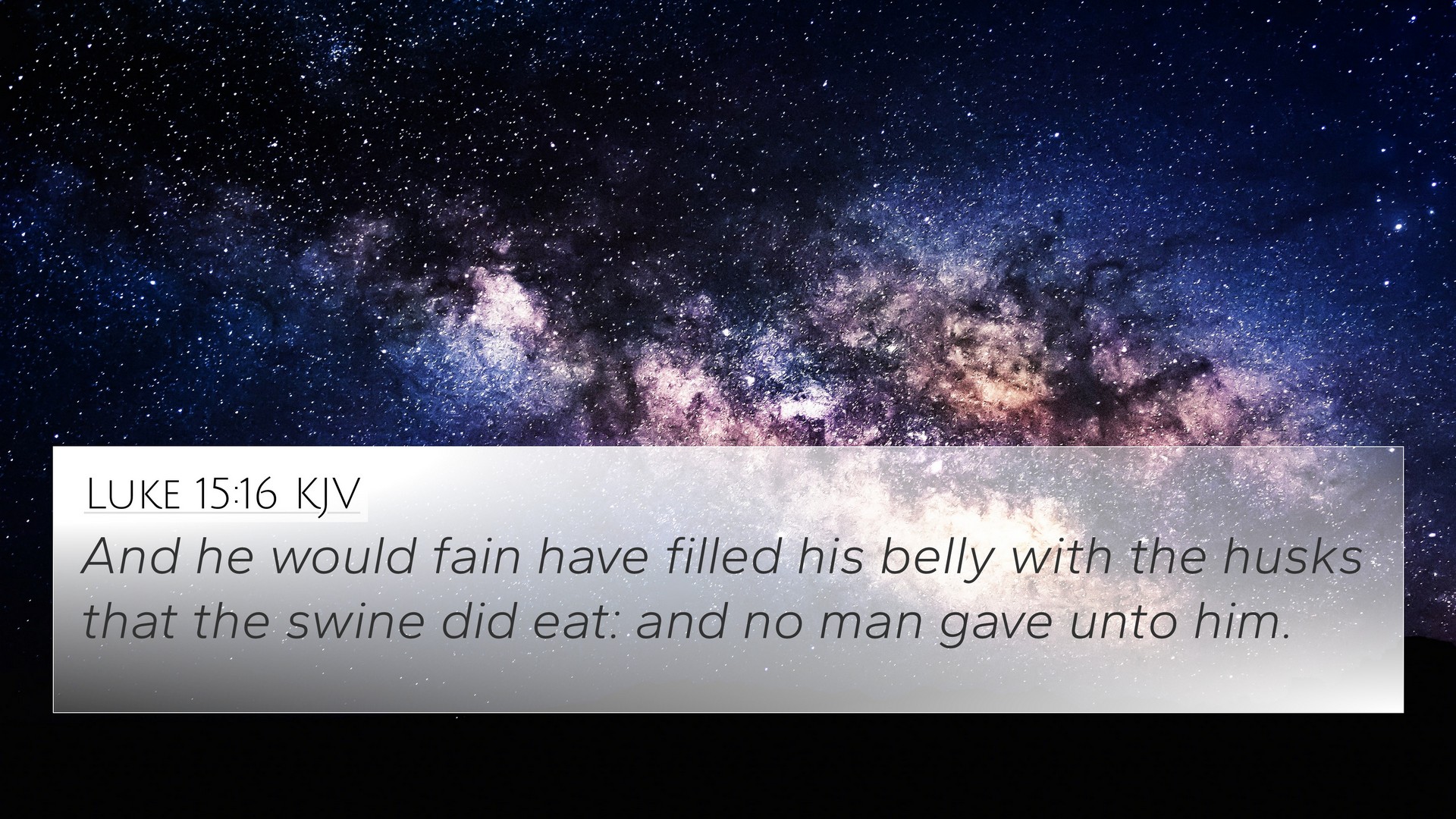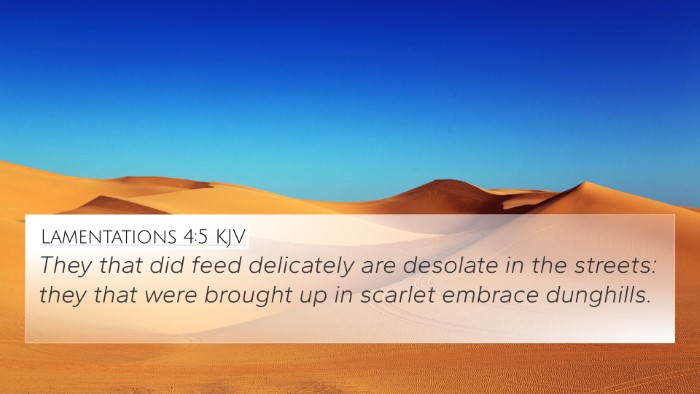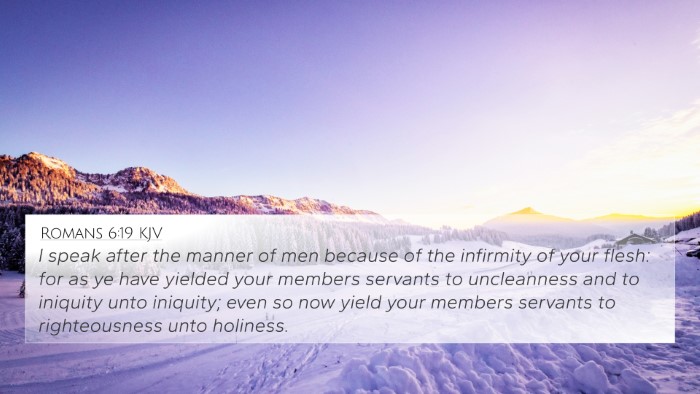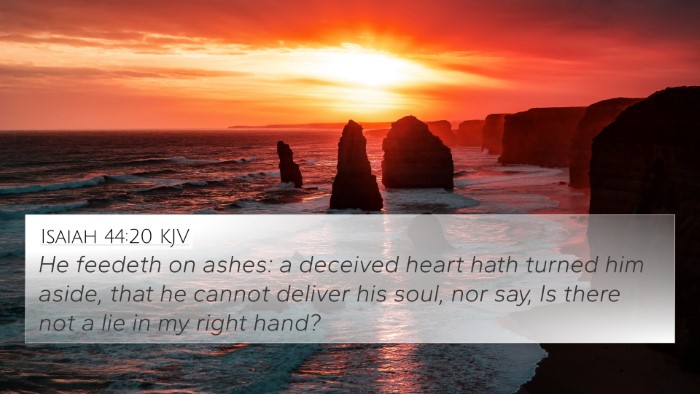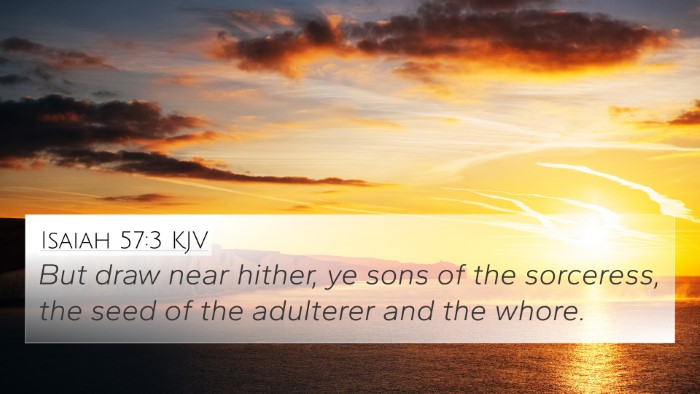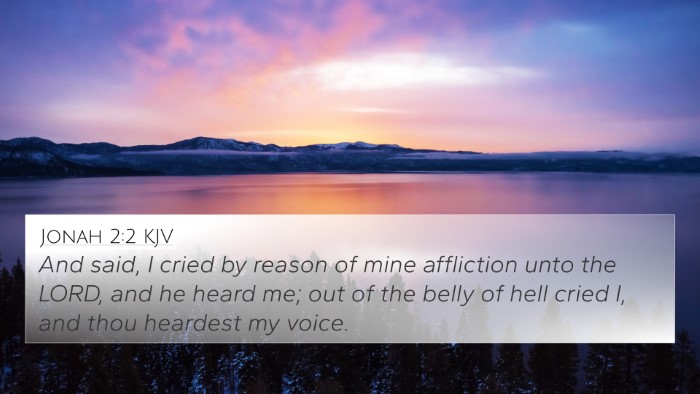Understanding Luke 15:16
Luke 15:16 presents a profound moment in the parable of the Prodigal Son. The verse states:
"And he would fain have filled his belly with the husks that the swine did eat: and no man gave unto him."
This verse illustrates the depths of desperation that the Prodigal Son experiences after squandering his inheritance. His condition serves as a powerful metaphor, inviting readers to explore themes of loss, repentance, and redemption.
Verse Meaning and Insights
Matthew Henry's Commentary: Henry highlights the spiritual implications of this verse, noting that the Prodigal Son's desire to eat with swine illustrates the shame of his sinful choices. It signifies a departure from a dignified life to one of utter degradation. Henry emphasizes that this situation prompts a self-examination leading to repentance.
Albert Barnes' Notes: Barnes points out the significance of the Prodigal's physical hunger as a symbol of spiritual famine. He argues that just as the son sought to satisfy his immediate needs with swine's food, people often seek worldly pleasures to fill their spiritual voids. This scenario reflects the larger theme of searching for fulfillment in places far from God.
Adam Clarke's Commentary: Clarke notes the cultural context of swine in Jewish society, which makes the son’s predicament even more poignant. Eating the husks given to swine is a metaphor for the ultimate humiliation. Clarke connects this verse to the notion of God's grace, where the lowest points in life become opportunities for God's redemptive work.
Thematic Connections and Cross-References
This verse serves as a key in understanding the intricate themes woven throughout Scripture. Below are several Biblical texts that relate to Luke 15:16, reflecting similar themes of loss and redemption:
- Proverbs 13:15: "Good understanding giveth favor: but the way of transgressors is hard."
- Galatians 6:7: "Be not deceived; God is not mocked: for whatsoever a man soweth, that shall he also reap."
- James 4:10: "Humble yourselves in the sight of the Lord, and he shall lift you up."
- Psalm 107:9: "For he satisfieth the longing soul, and filleth the hungry soul with goodness."
- Isaiah 55:2: "Wherefore do ye spend money for that which is not bread? and your labor for that which satisfieth not?"
- Luke 15:21-22: "And the son said unto him, Father, I have sinned against heaven, and in thy sight, and am no more worthy to be called thy son. But the father said to his servants, Bring forth the best robe, and put it on him..."
- Matthew 5:6: "Blessed are they which do hunger and thirst after righteousness: for they shall be filled."
Connecting the Dots: Inter-Biblical Dialogue
The Prodigal Son's experience echoes through many parts of the Bible, engaging readers in a rich dialogue of faith and restoration. The connection between this verse and others reinforces the importance of understanding the Bible as a cohesive narrative:
- This narrative invites exploration of the consequences of sin, akin to the warnings in the prophetic books, which often speak about turning away from God.
- Echoes of the father's unconditional love found in 1 John 3:1 remind us of our identity as children of God, welcomed back regardless of our wanderings.
- The theme of repentance here aligns with verses like Luke 13:3, which calls for genuine repentance to avoid perishing.
Tools for Understanding: Bible Cross-Reference Systems
For those engaged in deeper Bible study, utilizing tools for Bible cross-referencing can enhance understanding:
- Start with a Bible concordance to identify words and themes, navigating connections throughout Scripture.
- Utilize Bible cross-reference guides to explore thematic analysis and cross-referenced themes in the Bible.
- Engage with comprehensive Bible cross-reference materials for sermon preparation or personal study, providing insights on related teachings.
In conclusion, Luke 15:16 serves as a poignant reminder of the depths of human experience, underscoring the essential themes of sin and redemption. By cross-referencing this verse with others, believers can gain a more profound understanding of God's love and the journey towards restoration.
Reflective Questions
As you contemplate this verse, consider the following questions:
- What does this verse reveal about the nature of sin and its consequences?
- How does the story of the Prodigal Son inform your understanding of God’s mercy?
- In what ways can you apply the themes of this verse to your life today?
